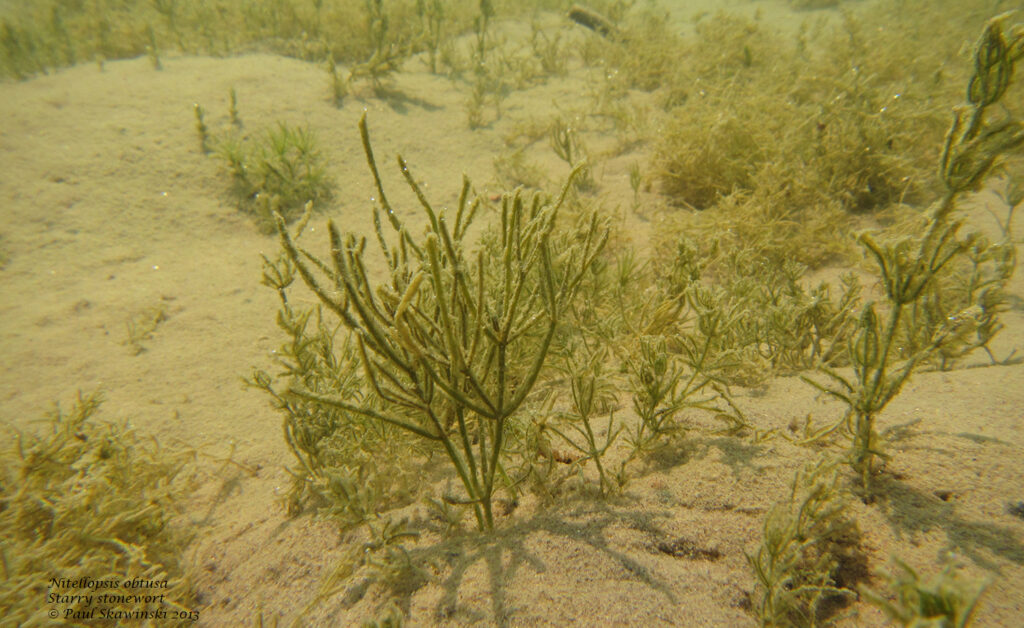NASA DEVELOP Spring 2025
NCEI News Feed
https://www.ncei.noaa.gov/news/nasa-develop-ncei-spring-2025-term
NCEI is proud to host NASA DEVELOP interns in spring 2025.
NCEI News Feed
https://www.ncei.noaa.gov/news/nasa-develop-ncei-spring-2025-term
NCEI News Feed
https://www.ncei.noaa.gov/news/nasa-develop-ncei-spring-2025-term
NCEI News Feed
https://www.ncei.noaa.gov/news/nasa-develop-ncei-spring-2025-term
NCEI News Feed
https://www.ncei.noaa.gov/news/nasa-develop-ncei-spring-2025-term
NCEI News Feed
https://www.ncei.noaa.gov/news/nasa-develop-ncei-spring-2025-term
NCEI News Feed
https://www.ncei.noaa.gov/news/nasa-develop-ncei-spring-2025-term
NCEI News Feed
https://www.ncei.noaa.gov/news/nasa-develop-ncei-spring-2025-term
NCEI News Feed
https://www.ncei.noaa.gov/news/nasa-develop-ncei-spring-2025-term
NCEI News Feed
https://www.ncei.noaa.gov/news/nasa-develop-ncei-spring-2025-term
NCEI News Feed
https://www.ncei.noaa.gov/news/nasa-develop-ncei-spring-2025-term
NCEI News Feed
https://www.ncei.noaa.gov/news/nasa-develop-ncei-spring-2025-term
Green Bay, WI
https://www.weather.gov/grb/032925_icestorm
Green Bay, WI
https://www.weather.gov/grb/032925_winterstorm
Green Bay, WI
https://www.weather.gov/grb/033029_winterstorm
Current watches, warnings, and advisories for Brown County (WIC009) WI
Current watches, warnings, and advisories for Brown County (WIC009) WI
https://api.weather.gov/alerts/urn:oid:2.49.0.1.840.0.f698daf6a9f00e8c1384d5632a13458f9ad055b7.005.1.cap
Current watches, warnings, and advisories for Brown County (WIC009) WI
Current watches, warnings, and advisories for Brown County (WIC009) WI
https://api.weather.gov/alerts/urn:oid:2.49.0.1.840.0.61a3cb2e4d4d6eed92bb1cea018ad802455165e6.005.1.cap
Current watches, warnings, and advisories for Brown County (WIC009) WI
Current watches, warnings, and advisories for Brown County (WIC009) WI
https://api.weather.gov/alerts/urn:oid:2.49.0.1.840.0.7573c4315d1321dc29323d17022a61fa9f877756.004.1.cap
U.S. Senators Bernie Moreno (R-OH) and Gary Peters (D-MI) will co-chair the Senate Great Lakes Task Force for the 119th Congress. They will hold meetings to coordinate legislative initiatives, funding priorities, and oversight efforts to protect the Great Lakes. Read the full story by WTVG-TV – Toledo, OH.
Great Lakes Commission
https://www.glc.org/dailynews/20250328-task-force
Since taking office in January, President Donald Trump and his administration has repeatedly stoked tensions with Canada, once considered the United States’ closest ally. Along with trade and tariffs, this strife has also raised questions about how the region’s water resources will be managed. Read the full story by Grist.
Great Lakes Commission
https://www.glc.org/dailynews/20250328-us-canada-relations
Climate change is making it easier for Great Lakes water birds to get sick, according to a recent University of Illinois study. The study identified avian diseases in the Great Lakes, including botulism and avian influenza, that could be primed for outbreaks amid warming waters and shifting migration patterns. Read the full story by Great Lakes Echo.
Great Lakes Commission
https://www.glc.org/dailynews/20250328-sick-birds
A Michigan House representative recently introduced a bill that could add a lot of regulations to fishing in Saginaw Bay. This could potentially be a massive obstacle for state licensed commercial fishers in the area. Read the full story by the Huron Daily Tribune.
Great Lakes Commission
https://www.glc.org/dailynews/20250328-saginaw-bay-fisheries
While they support bolstering the U.S. shipbuilding industry, officials warned millions of dollars in fees each time a Chinese-built ship stops at a U.S. port would threaten Great Lakes shipping. Read the full story by the Duluth News Tribune.
Great Lakes Commission
https://www.glc.org/dailynews/20250328-chinese-ships
U.S. and Canadian officials are monitoring a crude oil spill that was detected Thursday in the Canadian side of the St. Clair River near the Suncor Sarnia Refinery in Sarnia, Ontario. No impacts to drinking water were reported for Ontario or Michigan residents, although water intake valves were temporarily closed on the Michigan side. Read the full story by CBS News Detroit.
Great Lakes Commission
https://www.glc.org/dailynews/20250328-oil-spill
After reports have surfaced of dead birds on the shores of Lake Michigan, the city of South Haven, Michigan, is urging residents to leave the carcasses alone and report die-offs of six carcasses or more. Read the full story by MLive.
Great Lakes Commission
https://www.glc.org/dailynews/20250328-dead-birds
Wisconsin seems to be a consequence-free place to ditch a boat. Since Oct. 13, the owner of a local salvage company has been the only person who has shown any initiative in removing an abandoned boat, Deep Thought, from the Lake Michigan shoreline in Milwaukee. Read the full story by the Milwaukee Journal Sentinel.
Great Lakes Commission
https://www.glc.org/dailynews/20250328-abandoned-boat
The Soo Locks are open and ships are moving through all of the Great Lakes, bringing out “boat nerds” for spring ship watching. There are several ways for freighter enthusiasts to track them online. Read the full story by MLive.
Great Lakes Commission
https://www.glc.org/dailynews/20250328-boat-nerds
On March 14, Ohio gubernatorial candidate Vivek Ramaswamy said that perhaps Lake Erie should be changed to Lake Ohio. When looking at history, changing the names of the Great Lakes is not completely unheard of, but is a bit more complicated in today’s world. Read the full story by Great Lakes Now.
Great Lakes Commission
https://www.glc.org/dailynews/20250328-lake-ohio

“Nibi Chronicles,” a monthly Great Lakes Now feature, is written by Staci Lola Drouillard. A Grand Portage Ojibwe direct descendant, she lives in Grand Marais on Minnesota’s North Shore of Lake Superior. Her nonfiction books “Walking the Old Road: A People’s History of Chippewa City and the Grand Marais Anishinaabe” and “Seven Aunts” were published 2019 and 2022, and the children’s story “A Family Tree” in 2024.
Great Lakes Now
https://www.greatlakesnow.org/2025/03/she-makes-maple-sugar-right-now/

By Ellie Katz, Interlochen Public Radio
This article was republished with permission from Interlochen Public Radio.
The Great Lakes’ sea lamprey control program has the OK to rehire three dozen federal employees it needs to combat the eel-like, invasive fish species.
That’s after staffing cuts and hiring freezes from the Trump administration last month threatened the work, which the Great Lakes Fishery Commission said would have led to more than $200 million in lost fishing potential.
Great Lakes Now
https://www.greatlakesnow.org/2025/03/sea-lamprey-control-program-receives-ok-to-rehire-federal-workers-after-initial-scare/

On March 14, Ohio gubernatorial candidate Vivek Ramaswamy said that perhaps Lake Erie should be changed to Lake Ohio.
According to reporting from Cleveland.com:
“Anybody think if there’s a Lake Michigan, maybe there should be a Lake Ohio around here?” Ramaswamy said, about 13 miles away from Lake Erie.
Great Lakes Now
https://www.greatlakesnow.org/2025/03/could-lake-erie-really-become-lake-ohio/

By Izzy Ross, Interlochen Public Radio
This coverage is made possible through a partnership between Interlochen Public Radio and Grist, a nonprofit environmental media organization.
In a rare move, six tribal nations in Michigan have withdrawn from discussions on a federal permit for the Line 5 tunnel, which the Canadian company Enbridge wants to build under the Straits of Mackinac.
Great Lakes Now
https://www.greatlakesnow.org/2025/03/six-tribes-withdraw-from-federal-talks-over-line-5-tunnel-permit/

Catch the latest updates on what’s happening with PFAS in the Great Lakes region. Check back for more PFAS news roundups every other week on our website.
On March 24, Indiana Senate Bill 426 was signed by House Speaker and Senate President Pro Tempore.
Great Lakes Now
https://www.greatlakesnow.org/2025/03/pfas-bill-protecting-utilities-companies-passes-in-indiana-house-and-senate/

A few months ago, I was riding on Amtrak’s new Borealis line from St. Paul, Minn., to Chicago. The train was packed that day, and the new line has proved popular.
My coach seat was much nicer than any airline. Plus, I didn’t have to go through security.
Great Lakes Now
https://www.greatlakesnow.org/2025/03/what-would-the-great-lakes-region-be-like-with-bullet-trains/
The Great Lakes’ sea lamprey control program has the OK to rehire three dozen federal employees it needs to combat the invasive fish species. That’s after staffing cuts and hiring freezes from the Trump administration last month threatened the work, which the Great Lakes Fishery Commission said would have led to more than $200 million in lost fishing potential. Read the full story by Michigan Public.
Great Lakes Commission
https://www.glc.org/dailynews/20250326-lamprey-control-rehires
Due to a Wisconsin state law barring privately owned water systems from receiving loan forgiveness, the Superior Water Light & Power Company can’t access the federal loan forgiveness included in the Infrastructure Investment and Jobs Act that helps financially strapped communities upgrade water systems. Many state lawmakers and city officials want Superior residents to benefit from the federal money, but they’re at odds over how to make that happen. Read the full story by Wisconsin Public Radio.
Great Lakes Commission
https://www.glc.org/dailynews/20250326-funding-access
After being notified that the Line 5 tunnel project will likely be fast-tracked for federal approval, Great Lakes tribes are withdrawing as cooperating agencies in the federal environmental review process. In a letter, tribal leaders explained that the process has lacked meaningful dialogue with Indigenous Nations and other cooperating agencies, as well as undermined the federal government’s responsibility to protect tribal treaty rights. Read the full story by the Milwaukee Journal Sentinel.
Great Lakes Commission
https://www.glc.org/dailynews/20250326-tribal-review
The executive director of FLOW (For Love of Water), a law and policy center in Traverse City, Michigan, says the partnership between Canada and the United States regarding the Great Lakes has worked well, with critical Great Lakes programs, partnerships, and binational agreements that support the lakes in many ways. Read the full story by Bridge Michigan.
Great Lakes Commission
https://www.glc.org/dailynews/20250326-binational-relationship
The Michigan Department of Natural Resources will once again hire several people to monitor the critically endangered Great Lakes piping plover at four state parks. Those jobs are typically federally funded by the Great Lakes Restoration Initiative; however, due to cuts to federal programming, funding has only been released to cover two of the five planned hires. Read the full story by WOOD-TV – Grand Rapids, MI.
Great Lakes Commission
https://www.glc.org/dailynews/20250326-piping-plover-staffing
Rising temperatures and changing environmental conditions in the Great Lakes are contributing to harmful algal blooms (HABs), and new research suggests that the nearshore regions of Lake Superior could indicate climate change’s effects on the region’s ecosystem. HABs are often associated with warm, nutrient-rich lakes, but recently have been showing up in cold, low-nutrient lakes such as Lake Superior. Read the full story by Bridge Michigan.
Great Lakes Commission
https://www.glc.org/dailynews/20250326-climate-impacts
Farmers in 10 northwest Ohio counties in the Western Lake Erie Basin are now eligible to enroll or re-enroll in H2Ohio’s agriculture incentive program that uses proven, science-based, best management practices to help improve water quality throughout the state. Read the full story by Spectrum News 1.
Great Lakes Commission
https://www.glc.org/dailynews/20250326-incentive-program
The U.S. Army Corps of Engineers predicts that water levels for the Great Lakes will continue a seasonal drop until April; all of the Great Lakes this winter are below the 2023-2024 levels due to winter conditions. But now that spring-like weather is starting to show, most of the Great Lakes are predicted to have rising water levels. Read the full story by the Erie Times-News.
Great Lakes Commission
https://www.glc.org/dailynews/20250326-water-levels
Recent moves at the U.S. Environmental Protection Agency have environmental advocates on alert, as proposed agency layoffs and promises of deregulation raise questions about the impact on the Great Lakes region. Read the full story by Wisconsin Public Radio.
Great Lakes Commission
https://www.glc.org/dailynews/20250326-deregulation-impacts
A new Michigan Department of Natural Resources (DNR) research vessel, the 66-foot R/V Steelhead II, is currently being built in northern Michigan. The vessel will come equipped with a lab, netting, and solar panels, letting the DNR research the health of the Great Lakes without going ashore. Read the full story by WPBN-TV – Traverse City, MI.
Great Lakes Commission
https://www.glc.org/dailynews/20250326-research-vessel
This content is password protected. To view it please enter your password below: Password:
The post Protected: Lake Winnebago Ice Out: The Last Ice Is Gone—Here’s What It Means appeared first on Fox-Wolf Watershed Alliance.
Fox-Wolf Watershed Alliance
https://fwwa.org/2025/03/25/lake-winnebago-ice-out/?utm_source=rss&utm_medium=rss&utm_campaign=lake-winnebago-ice-out

By Brian Allnutt, Planet Detroit
This article was republished with permission from Planet Detroit. Sign up for Planet Detroit’s weekly newsletter here.
Environmental Protection Agency Director Lee Zeldin issued guidance to limit federal protections for wetlands last week that environmental advocates say will lead to more pollution in the Great Lakes.
Great Lakes Now
https://www.greatlakesnow.org/2025/03/wetlands-rules-face-rollback-under-trump-great-lakes-pollution-next/

Starry stonewort, and invasive aquatic algae, was first found in Wisconsin in 2014.
In 2014, Tom Reck was chairman of the Little Muskego Lake District when an invasive species made an unexpected appearance. It was the first time starry stonewort, an invasive macroalgae, had been found in Wisconsin.
“The problem was, we didn’t really know what was going to happen,” Reck recalled. At the time, little was known about how starry stonewort would behave — or how to control it. Media reports painted a dire picture, with one calling it the “start of the death of a lake.”
Ten years later, starry stonewort’s status in Little Muskego hasn’t changed: it remains at the bottom of the lake despite robust efforts to remove it. But what experts know about managing invasive species has changed.
In the newest season of “Introduced,” Wisconsin Sea Grant’s aquatic invasive species podcast, we not only learn how those experts are tackling the stonewort problem but how language, fear and human responses play a role in managing aquatic invasives.

Bret Shaw discusses the risks of fear-based AIS messaging with Introduced. Photo: Wisconsin Sea Grant
Fear plays a major role in how people react to aquatic invasive species (AIS). Paul Skawinski, who was involved in the initial response to starry stonewort through his role at Extension Lakes, has since reflected on how AIS messaging has evolved.
“When I started working with AIS 20 years ago in 2004, people didn’t even know what an invasive species was,” said Skawinski. “[Natural resources professionals] really stressed how scary and damaging these species were.”
Fear-based AIS messaging is often based on an assumption that invasive species have devastating consequences in every lake, and aggressive action is necessary to eradicate or contain them. But research has proven that this isn’t always the case. Aquatic invasive species behave differently in different environments.
“Sometimes they’re very aggressive, but sometimes they’re just integrated into the community and they don’t cause any real big issues,” said Skawinski.
Bret Shaw, a researcher at the University of Wisconsin–Madison, studies how communication influences environmental behavior. He recently collaborated with Wisconsin Sea Grant’s Tim Campbell to evaluate the effectiveness of fear-based AIS messaging, which often pushes lake management groups to consider aggressive herbicide use on their lake. Chemical treatment, however, carries its own risks and may harm native plants, disrupt ecosystems or possibly create better conditions for invasives.
“We want to avoid people creating ecological damage out of fear that’s not proportionate to the risk,” Shaw said.
How should one respond when a new invasive species is found in their lake or river? Paul Skawinski now recommends the “wait and see” approach.
“Healthy, balanced lakes with a lot of healthy aquatic plants and healthy shorelines can often defend themselves pretty well against the invasion of a new species,” said Skawinski. “So waiting and watching is an important technique to try and has been pretty successful in Wisconsin.”
Tom Reck’s perspective has also shifted in the last 10 years. “Starry stonewort is a carpet on the bottom [of the lake], which is kind of nice when you’re boating or swimming instead of standing in muck,” said Reck. And although the future remains uncertain, he’s noticed that people around the lake have learned to live with it.
“I’m not sure if it’s as bad as we thought,” said Reck.
To learn more about the story of starry stonewort, the science behind how humans react to new invaders, the consequences of fear-based messaging and the power of waiting and watching, listen to Introduced — available here or on your favorite podcast app.
The post Podcast shares the unexpected lessons of starry stonewort first appeared on Wisconsin Sea Grant.
News Releases | Wisconsin Sea Grant
News Releases | Wisconsin Sea Grant
https://www.seagrant.wisc.edu/news/podcast-shares-the-unexpected-lessons-of-starry-stonewort/
Current watches, warnings, and advisories for Brown County (WIC009) WI
Current watches, warnings, and advisories for Brown County (WIC009) WI
https://api.weather.gov/alerts/urn:oid:2.49.0.1.840.0.a540a713db1bcc4498a017548f40d935dce9f913.001.1.cap

By Kiley Bense, Inside Climate News
This article originally appeared on Inside Climate News, a nonprofit, non-partisan news organization that covers climate, energy and the environment. Sign up for their newsletter here.
PHILADELPHIA—At the John Heinz National Wildlife Refuge visitors center, a sculpture of a great blue heron made from recycled plastic bottles greets guests.
Great Lakes Now
https://www.greatlakesnow.org/2025/03/microplastics-lurk-in-freshwater-environments-across-pennsylvania/
An environmental initiative in Thunder Bay, Ontario, is helping keep garbage out of local waterways, with nearly 1,500 pieces of litter diverted from storm drains in the past year via the installation of LittaTraps in storm drains across the city. Read the full story by CBC News.
Great Lakes Commission
https://www.glc.org/dailynews/20250324-littatraps